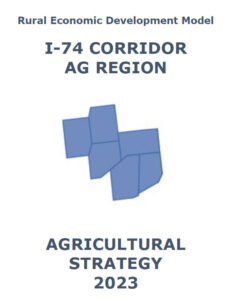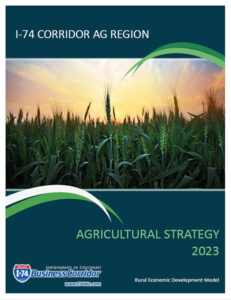I-74 Ag Strategy 2023
Indiana’s I-74 Business Corridor, in partnership with the Indiana Economic Development Association and Purdue Center for Regional Development (PCRD), published the Interstate 74 Regional Agriculture Strategy in 2023.
The document and work plan serve as a new roadmap to guide the region’s businesses, farmers, entrepreneurs, and leaders to create a stronger agricultural economy to meet the needs of today and prepare for the changes of tomorrow.
The I-74 Ag Strategy was funded by a grant from the U.S. Department of Commerce Economic Development Administration along with local match from economic development organizations in the region’s six counties: Dearborn, Decatur, Franklin, Ripley, Rush and Shelby counties, and City of Batesville.
CLICK HERE TO DOWNLOAD AND VIEW THE FULL I-74 AG STRATEGY DOCUMENT (PDF)
CLICK HERE TO DOWNLOAD AND VIEW A SHORT BROCHURE ABOUT THE I-74 AG STRATEGY (PDF)




